This weekend, Mother's Day, while joy-filled for many is full of anxiety for others.
If you're in the anxiety producing camp, know I am with you.
It's so hard to have complicated feelings about the mothers in your life.
It's so hard to have longings for children (or relationships) unfulfilled. Or to be grieving when everyone else is so happy.
We don't know what to do with these sort of "uneasy" feelings in our "How are you?" "I am fine" culture.
And faith communities really are the worse. Mother's Day is also know as a the day that the grieving don't feel safe at church.
I need to tell you that even as a pastor, one year on Mother's Day, I took the day off. I turned off my phone. And I just couldn't wait till it was Monday already!
I couldn't handle someone else asking me "When I was going to have kids already?"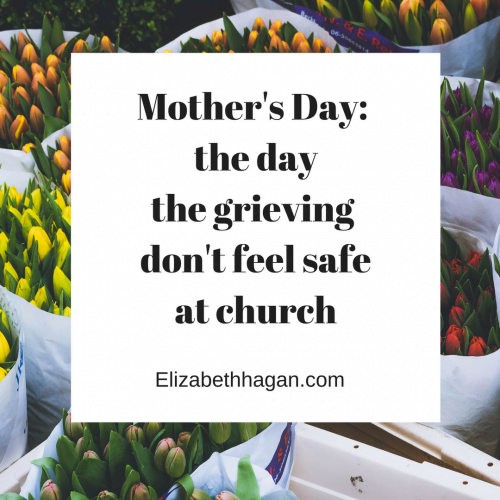
And even now, though I am a mother with little feet running around my house (after a long infertility journey), I still find Mother's Day so complicated.
As much as there is joy in my life, there is also loss, frustration and delayed expectations.
I don't believe I'm alone in these feelings, so as a pastor, I want to be sensitive to the complicated feelings so many of my beloveds will bring to worship on Sundays.
For it's my belief that we can help the grieving feel safer at church by the attention we give to our words and presence on Sunday (or any day really!)
Here's a prayer I wrote in the spirit of truth-telling, sensitivity and kindness. Adapt, use and share as it's helpful to you.
One: Mothers come in many different forms, and today we remember them all.
Many: Thank God for all mothers.
One: For those women who have left earth too soon and in whom we miss dearly.
Many: Thank God for these mothers!
One: For every woman who is raising children now making sacrifices for her children’s becoming.
Many: Thank God for these mothers.
One: For those women who have taken in others’ children through adoption and foster care, showing us that the love of God far extends beyond biological ties.
Many: Thank God for these mothers.
One: For those women with grieving hearts for children that could have been with futures so different from they planned.
Many: Thank God for these mothers.
One: For the special neighbors, teachers, and friends who’ve nurtured us, supported us and helped us to become the people we are today.
Many: Thank God for these mothers.
One: For mothers in which our relationships are complicated, difficult or strained, but who have forced us to choose healthier paths for our lives.
Many: Thank God for these mothers.
One: Mothering God, help us all to reflect more of your compassion, kindness and strength to those around us today. As Meister Eckhart has said, “We are all meant to be mothers of God. God is always needing to be born” let this be true of us! We need more of you, here, God!
Many: Thank God for mothers. AMEN
If I can be a resource to you, as a grieving mother, particularly, don't hesitate to contact me.

Friends, it's National Infertility Awareness week. Welcome to several new readers of Preacher on the Plaza! And I'm happy to use this blog over the next couple of days to give others a platform to share their stories of grief, loss and deferred longing. Even if "infertility" is not your thing and you read my blog for other reasons, I ask you stick with me for the next couple days. Hear these stories. Chances are you know someone going through infertility or who has infertility in their story just as I wrote about in Birthed: Finding Grace Through Infertility.
Today, I'm so glad to welcome the brave voice of Sarah, a fellow clergy to this blog to share her story. She offers some wise counsel for all of us as we move toward Mother's Day in a few short weeks.
It's no coincidence that National Infertility Awareness Week arrives just prior to Mother's Day, my new hardest holiday. And it's not because I don't love my mother. I love her, a lot (and she knows it). It's because of how we celebrate the day.
Here is what we do on Mother’s Day. We celebrate people who have entered into the Motherhood Club. This is a club that crosses many boundaries: race, religion, age (to an extent), geography, economics, etc. Mothers come from everywhere. And whether or not they planned to join the club, they are bound to all who have done the same. Mothers get respect. And they should.
Here is what else we do on Mother's Day. We sometimes take a moment to remember those who have lost their mothers. Whether in a congregation or at nice restaurant for brunch, we see women with white flowers pinned to their lapels, making tangible their losses. They are motherless children. Anna Jarvis, who founded Mother's Day in 1908, did so to memorialize her own mother, and the invaluable gifts she received from her.
So let's talk about what we don't do on Mother's Day. We don't talk about those of us who wish we were mothers. We don't talk about the trials and tribulations on the path to motherhood. We don't talk about those of us who have never seen two pink lines on a pregnancy test or those of us who have miscarried or had stillborn children. We fail to mention those of us who have injected our bodies, taken pills, and been poked and prodded reaching, with all the hope we can muster, toward the title of Mom.
We fail to name the childless mothers, those of us who have been denied entry to this club. Some us of believed that entry was so easy that we purposely delayed our membership, and considered ourselves wise for it. And there are some who did not delay and yet also remain outside the club. And many of us will pass this May 14th in grief. The newest stats say one in every eight couples, and my husband and I are one.
This Mother's Day I was hopeful that I would be sharing with my mother and mother-in-law (and other family) the news that I would be joining their club at long last. It would work this time. I was so hopeful. But another month of medications and tests and interventions has gone by and we have nothing to show for it. It has been nearly three years since my husband and I set out on this journey. And we remain painfully childless.
This is not an easy place to be on Mother's Day or any day. It's not an easy place to be when I have more than five friends joining the motherhood club in 2017. It's not an easy place to be when everyone I meet seems to ask me if I have children, or better yet, if I have started a family yet. Yes, I have started a family, in fact, six years ago this month. We said "I do" on a rainy April day with plenty of people telling us that rain on my wedding was a good fertility omen. That part wasn't true, but our love has been.
So during this week of infertility awareness, I do not want to complain about family language or rant about Mother's Day (okay, maybe a little). But what I desperately want is for infertility to be talked about, so that it gets out of the dark shame closet and into the bright daylight. That's why I am now writing about it out in the wide open interwebs.
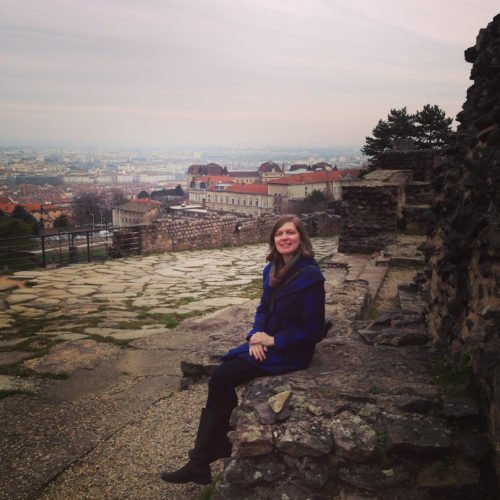 For my fellow fertility warriors, I am blessed to know you and could not walk this path without you. For my pregnant friends, thank you for acknowledging my pain and not talking about your bellies too much. I am honestly happy for you and wish we were doing this together. For those who have not had trouble getting pregnant, please see me and my pain without offering suggestions to fix it (yes, I know about adoption). Real listening is the best gift you can offer me.
For my fellow fertility warriors, I am blessed to know you and could not walk this path without you. For my pregnant friends, thank you for acknowledging my pain and not talking about your bellies too much. I am honestly happy for you and wish we were doing this together. For those who have not had trouble getting pregnant, please see me and my pain without offering suggestions to fix it (yes, I know about adoption). Real listening is the best gift you can offer me.
We all carry hidden grief over losses that may never come to light. Right now, this is mine. And by reading, you are helping me carry it. Thank you.
Sarah is an ordained Unitarian Universalist minister and works as a healthcare chaplain. She lives in Maine with her husband, Adam. When she's not at work, Sarah enjoys singing (often with her ukulele), baking, and watching baseball. She graduated from Andover Newton Theological School and The George Washington University.
*SHARE this blog on Facebook or Twitter this week and be entered to win a free copy of Birthed! Tag me on Facebook or Twitter when you post.
A sermon preached from Ruth 1:1-18 at Springfield Christian Church, Springfield, VA
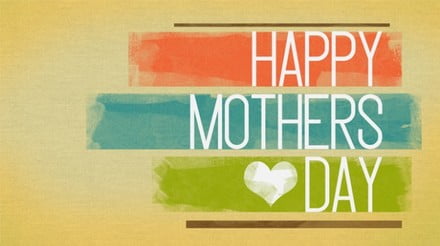 Mother’s Day . . . it’s a day on our calendar much like Christmas or Easter brimming over with sentimentality and expectation, isn’t it? We have in our heads (or least the Hallmark card industry has in our heads) visions of what this day is suppose to feel like. We have visions in our head of what this day is suppose to be like and smell like. Received affection. Affirmed praise. Pretty cards and flowers. The perfect gifts wrapped with pretty bows. No strife. No misunderstanding. No pain.
Mother’s Day . . . it’s a day on our calendar much like Christmas or Easter brimming over with sentimentality and expectation, isn’t it? We have in our heads (or least the Hallmark card industry has in our heads) visions of what this day is suppose to feel like. We have visions in our head of what this day is suppose to be like and smell like. Received affection. Affirmed praise. Pretty cards and flowers. The perfect gifts wrapped with pretty bows. No strife. No misunderstanding. No pain.
But I don’t know about you but my family and my home isn’t perfect. Perfect is not what I woke up to this morning. And I imagine you didn’t wake up to perfect either.
And so today, maybe in your family you haven’t spoken to your son or daughter for months and you wonder if they’re really going to call home today?
Maybe in your family the pain of a loss of mom still feels fresh or even still full of ache after all these years?
Maybe in your family is not complete in the way you dreamed about it as a child—no partner to have children with or no children in your home at all?
And in all of this, there are rubs and bruises. There are broken dreams and lost hopes. You might have even wondered why you bothered coming to church this morning since the words “Mother’s Day” are on the front cover of the bulletin. For all this imperfection is too much to bear.
But, might there be another way to engage with this the second Sunday of May? This the 7th Sunday of Eastertide? And most of all a good day to be in worship because we believe as the Psalmist says, “This is the day that the Lord has made?”
I believe there’s another way. There’s a gospel way to think about mothers and families today. And our Old Testament text from Ruth chapter 1 offers us some answers.
As we open to the book of Ruth, what we find is a tale of broken hopes, yes. But also a journey of redemption, a journey of redemption for a family in the way the God creates family.
What we first learn as we begin with verse one of chapter one is this: “In the days when the judges ruled, there was famine in the land and a certain man in Bethlehem in Judah went to live in the country of Moab, he and his wife and two sons.”
Thus our story begins with a crisis: famine.
Bethlehem had no more bread. Though the literal translation of the word Bethlehem means, “House of Bread” at this time, we learn people are starving. The family of Elimelech and his wife Naomi realized that they must move his family to a foreign land if they are going to have any chance of survival. So they go. Food is found. They try to make a new life for themselves in Moab. This family of four embraces their refuge status.
And over the course of several years Elimelech’s sons, Mahlon and Chilion marry women from their new home, Orpah and Ruth. What joys!
All was going well until tragedy struck this family again.
First Elimlech died. What a loss!
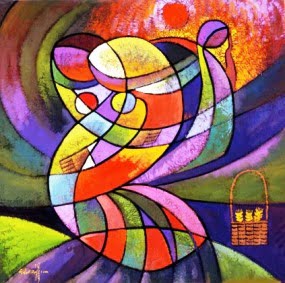 Then after they’d been in Moab for 10 years, the scripture tells us that Mahlon died. Then, Chilion passed too.
Then after they’d been in Moab for 10 years, the scripture tells us that Mahlon died. Then, Chilion passed too.
Three deaths one after another after another. Sit with this a moment. How in the world did poor Naomi get out of bed in the morning? Her husband, her first son and then her second. I believe not only was this loss seemingly emotionally insurmountable but culturally impossible to navigate as well.
Because this was the context: the laws of the day stated that a woman without nearby male relatives or offspring was completely on her own. No way to work. No way to own property. No way to re-marry without a dowry from a male relative to help her. How would Naomi and her daughter-in-law not starve?
So given all of this, persistent Naomi comes up with a plan, the best plan she can muster. She’s heard that there’s food again in Judah. Though Moab has grown to be her home and the last place she has memories with her beloved, she sees light at the end of the tunnel. And this light looks like being a beggar back in her hometown. She believes she must go back. She’ll find food there.
So, quickly Naomi’s mind is made up. She’ll travel, solo though.
In preparation for the journey, Naomi takes her two daughters-in-law aside, to have that woman-to-woman talk, to set things straight, and to pour out her sorrow. “I’ve gotta go” Naomi says but “You’ve got to stay. I can offer you nothing more.”
Can you imagine both the overwhelming grief and courage it took for Naomi to say these words?
Because grief does what it does--- often pushes people away, says let me be alone, let me deal with this and get through this so that my pain doesn’t bring pain to you too.
But isn’t it true, even in grief, we sometimes have the capacity to think of the other? Naomi felt concern for her daughters-in-law. Naomi knows that Orpah and Ruth could start over. They could find other husbands. They could have children with them. They could move on with their lives and forget hopefully one day that this painful chapter ever existed. So she urges them to stay. Stay in Moab.
Bottom line: Naomi asks her daughters-in-law to choose security, a norm, what society would call the “best case scenario” given the less than desirable circumstances for them.
Orpah and Naomi cry and cry and object to this parting.
Yet, Naomi clearly speaks her mind in verse 11, “Turn back my daughters, why will you go with me?’
Orpah eventually agrees and set back toward her home place.
But Ruth is different. She refuses to believe that family is defined by the cultural and economic system. She refuses to accept that this very hard patch is the end of the story or all of the story. She refuses to let Naomi’s pain be the determinate of their future.
So in verse 14, we read that Ruth “clings to” Naomi.
I think it’s interesting that Ruth chooses the Hebrew word for cling which is the same verb used in Genesis chapter 2 when after the creation of the first man and first woman the instructions are, “a man must leave his father and mother and cling to his wife.”
Ruth is not going to leave Naomi! She says with her body language, “I love you and I won’t let you go.” Powerful.
And Ruth’s speech to Naomi that follows is one that you might very familiar with. You might have heard it read at weddings (or even your own like it was at mine!). But if I was going to give a theology lesson here I don’t believe her speech is a text about marriage but rather a powerful word about how it is that God creates families.
These are more than beauty words. They are words full of devotion!
Commentator John Holbert advises us: “We must remember the exact context of this speech if we are to recover its wonder. Ruth has been dismissed by Naomi; she plainly is not in any of Naomi’s future plans but she still says: Do not force me to abandon you, or to turn away from following you.”
Most of all, Ruth will not take no for an answer! And she models this:
 Of course, the journey to Judah and the early days there would not be an easy road for Ruth. Redemption stories never are.
Of course, the journey to Judah and the early days there would not be an easy road for Ruth. Redemption stories never are.Listen to the cost. For Ruth to follow God’s path for family, she’d give up her homeland, her Moabite passport and all things familiar. She too would become a refugee in a foreign place. She’d face a vulnerable journey ahead where nothing would be certain. What would life be like in Judah? No one really knew.
But, she’d be with Naomi. She’d be claimed in a new family. She’d be in exactly the place in life she needed to be--- though not perfect or ideal, she found her place to belong even still.
I love how this text ends in verse 18. “When Naomi saw that [Ruth] was determined to go with her, she said no more.”
I.e. Chatty Naomi with her plan for everything, with her pain and her future all nicely worked out in a package with a bow on top gets rendered speechless.
This kind of family “I chose you” devotion is something she did not expect.
But who really does?
When the Spirit begins to move, when life’s most powerful redemption stories find us, when someone not obligated to love us does, we’re speechless too.
The way God creates families might make us speechless too.
And this my friends is the good news I have to offer you today on a day of so much family expectation and potential disappointment:
Don’t hear me wrong. Biology is great. Or can be great. The mothers and fathers and sisters and brothers that we are born alongside and grow up with can be some of God’s greatest gifts to our days.
But, if there is anything that the story of Ruth and Naomi teach us that we need not idolize our blood line. Our God is about connecting us to one another so many deeper ways. Our God is in the business of creating Spirit families. And Jesus had a lot to say about it too:
Not only did Jesus tell his disciples: “Who are my mothers and brothers and sisters? Those who do my will.”
And connect his own mother to a new son (to John) upon his death—with no biological ties I might add.
But Jesus gave us the Holy Spirit and the Holy Spirit birthed the church—a place where we are all welcomed and joined together as one.
And so if this is true: may we act like it. May we love one other. Abide with one another. Bear with one other.
And say to one another when hard times come, just as Ruth said to Naomi that day: “Do not press me to leave you or to turn back from following you! Where you go, I will go; where you lodge, I will lodge; your people shall be my people, and your God my God. Where you die, I will die—there I will be buried.”
God’s family is deeper and longer and higher and wider than any one home, than any one mother or father or sister or brother. We belong to something great-- the family of God.
AMEN
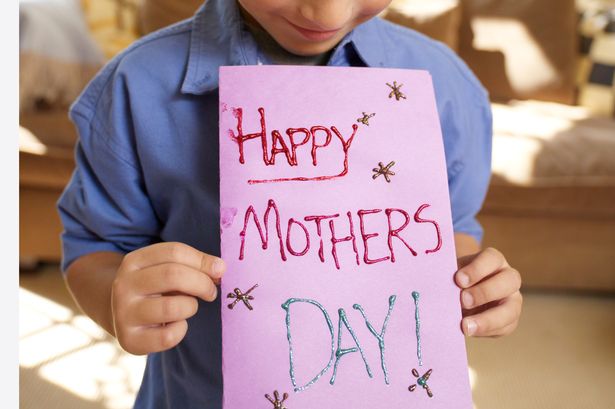 As many of you know, I've written a book about my journey as both a pastor and a person who's struggled with infertility due out with Chalice Press in October (so exciting!). And so with this true as you might imagine . . .
As many of you know, I've written a book about my journey as both a pastor and a person who's struggled with infertility due out with Chalice Press in October (so exciting!). And so with this true as you might imagine . . .
In these years of struggle I've thought a lot about what the church does wrong, what it can do better, and how I might be a voice to help the church be a place that is more inclusive for all women.
So, this week I contributed a post over at Patheos (a fabulous site for conversations in progressive theology) called "5 Ways the Church Hurts On Mother's Day" Here's a teaser.
Mothers Day. In many churches its celebrated as a church holiday when Pentecost, Trinity, or All Saints Day are not. In some, it’s the second highest attendance Sunday after Easter (I know it was in the churches I’ve pastored!). On May 8th, it will be rare that you don’t find a bulletin cover with the title “Mother’s Day” printed on the front.
Oh, how we love the day! In fact, so many churches have Mother’s Day routines executed with robot-like procession. Few can imagine doing it any other way.
But in this high exalted practice of Mother’s Day celebrated in churches of all sizes and flavors, I believe hurt occurs. Hurt occurs in practices like these 5 common Mother’s Day observances . . . You can read the rest by clicking here.
I've also contributed a post over at Project Pomegranate. This is a ministry that provides non-directive, spiritual resources about infertility, pregnancy loss, and infant death to individuals and their faith communities through its blog, books and other resources. You can find them on Facebook.
My post is called, "A Long Labor" a personal reflection about what it means to labor through infertility, though in the end the work might not result in a typical pregnancy. Here's part of the story.
I have been in labor for almost eight years. There have been ultrasounds. There has been blood work. There has been pain: both physical and emotional.
I feel called to motherhood. It’s as strong as the calling I felt to ordination almost ten years ago. It’s as strong as the calling that I felt to marry over eight years ago. But, I am still a childless mother in the the way most mothers are recognized. My bio below lists no children in our immediate family.
When I first began the journey toward motherhood, I was naïve.
After being married a year, I thought we’d start trying to have kids and then nine months later pop out a beautiful baby. I saw so many of my friends become mothers so easily. My mind and body felt strong. I saw no groaning up ahead. Why would childbirth not happen easily for me? You can read the rest here.
Also check out this post from my friend and fellow clergy colleague, Renee Kenley Purtlebaugh about her long season of grief. She has a great story to tell too.
I'm thankful for these ministry partners helping to tell stories so the silent journey of infertility is silent no more.
Most of all this weekend, I'll be reminded of these truths:
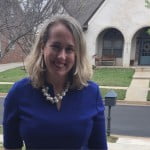 It's the week of Mother's Day. And it's that time of year that the church struggles to know what to do with women who aren't mothers in the traditional sense.
It's the week of Mother's Day. And it's that time of year that the church struggles to know what to do with women who aren't mothers in the traditional sense.
Pastors muse about, "Who gets a rose and who doesn't?"
The church ladies are known to whisper: "What should we do since ___ doesn't have kids?"
And, women without children can't imagine feeling safe in worship services.
I recently did this interview over at Amateur Nester's blog with two other pastors about expanding the conversation between infertility and the church. I wanted to share it again here because I think these words might be helpful to all of us struggling to be more sensitive to those who find this Sunday to be a very hard day. If you'd like to see the full post, you can read it over here.
EH: I [struggled] too. You are not alone. To live in a very fertile world and to have the desire to parent (which is a natural God-given desire) and then not be able to without a road of intense hardship is difficult. It is very easy to feel like God has abandoned you or forgot you. Or loves your pregnant friends more than you.
Don’t beat yourself up about these feelings. Be honest about them. Share your faith struggles with somebody who can handle them (and not everybody can!). Stay close to people who are dealing with pain, especially older women. Let them be your teachers even if they have never been through infertility or child loss themselves. Talk about suffering with them. Read the book of Job, even together. Let God be with you in the pain to the degree that this is possible for you. For, this will be your way out.
EH: Stay at home. Do something makes you feel good about yourself.
Last Mother’s Day, I was in between churches so I didn’t have to attend. Instead of going to services, I went to a class at the gym, ate lunch with a good friend and then took myself shopping for a Mother’s Day gift.
EH: When people ask me why I don’t have children, I tell them. Or in small groups of women if this is something that comes up, I share. But if they don’t, this isn’t something I keep to myself. If I’m a crying mess about my own heartbreak, I’m not doing my job as a pastor which is to shepherd and lead others.
I don’t believe it is the role of a pastor to “throw up” their struggles on the congregation. Rather, this is what counselors, friends and family members are for. In being a pastor that doesn’t share the ins-and-outs of my infertility with the congregations I’ve served, it has given me an outlet to remember that I’m not as much of a failure as my body makes me feel.
This does not mean that my own struggles with infertility and child loss have not enriched and informed my own preaching and teaching. For example, over the years, I’ve preached during Advent while going through IVF. I’ve lead a baby funeral after just having my own miscarriage. I’ve even preached on Easter when I was convinced God didn’t love me. These experiences have helped me be more in tune with where most people in the church are at one point or another: unsure of God’s presence and fighting to have some kind of faith. I believe my struggles with infertility have benefited my congregations, even if they didn’t know the specific reason.
EH: The church can stop saying stupid stuff like, “Everything happens for a reason” or “If you just pray harder. . . “ or “In God’s time . . .” These clichés are of no help to infertile women, or anyone going through a time of intense suffering for that matter.
Pastors need to do a better job of creating a climate of authenticity in church life. I mean, everybody is going through something. It could be infertility. It could be something loss of a loved one. It could be anything. We need to be able to talk to each other and abide with each other through the good times and the bad. Pastors set the tone for this kind of communal life.
EH: The resources I have to share deal with a theology of suffering.
One of my favorite books on this topic is Learning to Walk in the Dark by Barbara Brown Taylor. She has a lot of powerful things to say about how the “dark” times of life aren’t necessarily bad or full of God’s judgment on us, but rather an opportunity to more fully understand who God is!
I’m also a fan of Richard Lischer’s book, Stations of the Heart. Dr. Lischer was one of my professors in seminary and lost his son to cancer while his wife was pregnant with her first child. It’s one of the most real books I’ve ever read on grief and the forms it takes.
And Anne Lamott’s book, Stitches: A Handbook of Meaning, Hope and Repair is one of the best books I’ve read about what it means to walk with another person through suffering. Anne Lamott simply tells it like it is!
As I watched tears flow down cheek after cheek during the pastoral prayer on Mother's Day while serving at the pastor of Washington Plaza Baptist Church, I thought anew about the concept of celebrations days not being so celebratory for many.
This was the prayer we were praying:
Mothers come in many different forms, and today we celebrate them all!
Thank God for mothers!
For those women who have joined God in heaven and whom we miss dearly here on earth.
Thank God for the mothers of the past.
For every woman who is raising her children now making sacrifices for her children’s becoming.
Thank God for the mothers of today.
For those women who have taken in others’ children through adoption and foster care, showing us that the love of God far extends beyond biological ties.
Thank God for the mothers with hearts so big.
For those women who have lost a child to death or want to have a child know they can’t, carrying on with the pain of lost dreams.
Thank God for the mothers who are so strong.
For all the women who are “mother hens” in our community; who nurture us, support us and guide us in our becoming.
Thank God for the mothers in spirit.
We thank you, Lord, for the women who have influenced our lives in so many ways.
We pray that we will honor them in everything we do. Amen.
********************************************************
On this day, even with the sensitivity to all types of mothers in my congregation, there was still much sadness. An entire day on the cultural calendar set to honor mothers just seemed like a slap in the face to the pains deep within many of loss!
Yet, such experiences, I know, are not limited to Mother's Day alone. Father's Day can be quite difficult as well as Christmas, Easter, and even Valentine's Day.
For example, I've had single friends tell me that even if they are happy with the state of their social lives, the romantic love fest of Valentine's Day seems to be like one huge slap in the face as if something wrong with them.
And this is the truth I know: for as much as any day of our life is joyous, it is sad for another. As much one day is painful for us, there is hope being birthed anew in our neighbor. And, this is the human story. And, in the body of Christ, we are able to become more human by having community to understand this story.
Let us not be sad or simply happy, but let us be a community that holds one another life experiences and emotions in our hearts so that we may truly come to understand what it means to be woven together as one family.
I truly believe we need each other on days like Mother's Day. We really do.